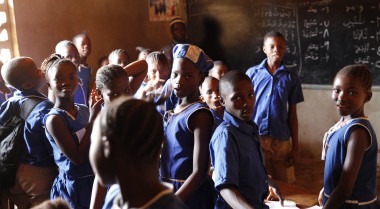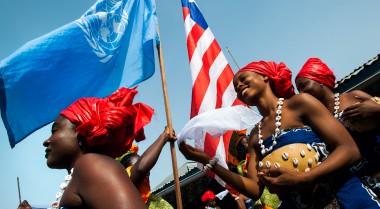
Realisation of the SDGs in Countries Affected by Conflict and Fragility: The Role of the New Deal
Countries affected by conflict and fragility were among those left furthest behind by the Millennium Development Agenda. Through the 2030 Agenda for Sustainable Development, the world pledged to reach the furthest behind first. In April 2016, over forty countries and organisations signed the Stockholm Declaration on Addressing Fragility and Building Peace in a Changing World. By doing so, they recommitted to using principles of the New Deal to guide efforts to achieve the Sustainable Development Goals (SDGs) in countries affected by fragility and conflict. As the global community moves to implement the 2030 Agenda, the value of the New Deal as a key global framework for sustainable peace and development must be highlighted and brought to bear. The New Deal represents the efforts of some of those who are furthest behind to build a better future for themselves, with the support of the global community. At its core, the New Deal is a set of principles designed to tackle the root causes of conflict and fragility that undermine development. These principles, and their associated mechanisms, seek to forge trusted partnerships at national and global levels. They also seek collective commitment to key priorities that build resilience and promote inclusive development.
This note is intended for national actors and their international partners operating in countries affected by fragility and conflict. Its purpose is to support their efforts to realise the 2030 Agenda, including but not limited to SDG 16, using the principles of the New Deal. This can be achieved by: 1) Supporting country-owned transitions towards resilience through prioritisation and sequencing of the SDGs in ways that take account of conflict and fragility; 2) maximising the possibility for greater coherence and accountability between country-led planning, stakeholder consultation processes, and partner support; and 3) working to ensure results are sustainable.



